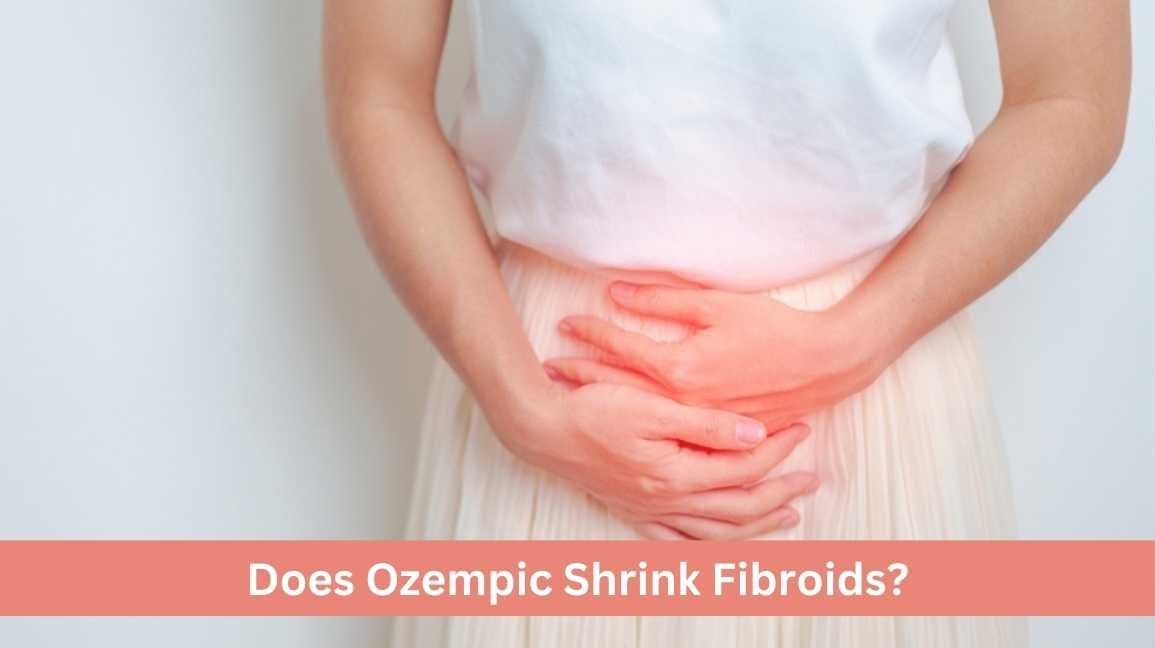Ozempic is a prescription drug mainly used to treat type 2 diabetes. This once-weekly injectable medication aids in regulating blood sugar levels and supports weight loss.
On the other hand, fibroids are non-cancerous growths that develop in the uterus. They can range in size from small pea-sized growths to large tumors that can cause discomfort and heavy bleeding.
Many women with fibroids may wonder if taking Ozempic can help shrink their fibroids. In this section, we will explore what research says about the effects of Ozempic on fibroids.
What are Fibroids?
Before delving into the potential effects of Ozempic on fibroids, it is essential to understand what fibroids are and how they can impact a person’s health.
Fibroids, also known as leiomyomas or myomas, are growths that develop in the muscular wall of the uterus. They are non-cancerous and can vary in size from small to large. Some women may have a single fibroid, while others might have several.
The exact cause of fibroids is still unknown, but research suggests that hormones such as estrogen and progesterone play a role in their growth. Other factors such as genetics, obesity, and age may also contribute to the development of fibroids.
Types of Fibroids
There are four types of fibroids, categorized based on their location in the uterus. These include:
- Intramural fibroids: these develop within the uterine muscle wall.
- Submucosal fibroids: these develop just under the lining of the uterine cavity and can protrude into it.
- Subserosal fibroids: these grow outside the uterus, usually on its outer surface.
- Pedunculated fibroids: these are attached to either the inner or outer surface of the uterus by a stalk-like structure called a peduncle.
Symptoms Associated with Fibroids
Fibroids do not always cause symptoms, but when they do, the most common ones include:
- Heavy or prolonged menstrual bleeding
- Pelvic pressure or pain
- Frequent urination
- Difficulty emptying the bladder completely
- Constipation
- Lower back pain
In some cases, fibroids can also lead to complications such as anemia due to heavy bleeding and infertility.
The Connection Between Ozempic and Fibroids

Now, let’s address the main question: does this medication shrink fibroids?
The short answer is no. Ozempic has not been shown to have a direct effect on fibroids.
However, some studies suggest that Ozempic may indirectly benefit women with fibroids by aiding in weight loss. Obesity is a known risk factor for fibroid development, and losing excess weight has been shown to decrease the size and symptoms of fibroids.
Additionally, Ozempic’s ability to regulate blood sugar levels may also be beneficial for women with fibroids. Studies have shown that high insulin levels and insulin resistance play a role in the development of fibroids.
Therefore, by helping control insulin and glucose levels, Ozempic may contribute to slowing down the growth of fibroids. However, more research is needed to confirm this potential benefit.
Also Read: Can Ozempic Aid in Managing Endometriosis?
Potential Benefits of Using Ozempic
While Ozempic is not specifically designed to shrink fibroids, there are several potential benefits for women suffering from them:
1. Weight Loss Support: As mentioned earlier, Ozempic aids in weight loss, which can help reduce the size of fibroids and alleviate related symptoms.
2. Regulation of Blood Sugar Levels: By helping to regulate insulin and glucose levels, Ozempic may mitigate insulin resistance, which is linked to fibroid development.
3. Reduced Symptoms: Improved management of blood sugar levels might lead to fewer symptoms associated with fibroids, such as heavy bleeding and pelvic pain.
4. Lower Inflammation: Weight loss and improved metabolic health can reduce systemic inflammation, potentially influencing fibroid size and discomfort.
5. Enhanced Overall Health: By managing diabetes and promoting a healthier lifestyle, Ozempic can improve overall health, which is beneficial for women experiencing the effects of fibroids.
Potential Risks of Using Ozempic
While there are potential benefits to using Ozempic for women with fibroids, it is also important to consider potential risks, including:
1. Gastrointestinal Side Effects: Ozempic may cause nausea, vomiting, diarrhea, or constipation, which could complicate the experience for women dealing with fibroid symptoms.
2. Hypoglycemia: There’s a risk of low blood sugar, especially if Ozempic is used in conjunction with other medications for diabetes, potentially leading to dizziness or fainting.
3. Pancreatitis: Some studies have indicated a risk of pancreatitis associated with GLP-1 receptor agonists like Ozempic, which can be a serious condition requiring immediate medical attention.
4. Possible Weight Loss Complications: Rapid weight loss can cause complications such as gallbladder issues or the formation of gallstones, which may pose additional health challenges.
5. Lack of Fibroid-Specific Research: As there is limited research on the direct effects of Ozempic on fibroids, relying solely on this medication to manage fibroid-related health could be risky without proper medical guidance.
6. Hormonal Effects: Since hormones play a crucial role in fibroid growth, changes in hormonal balance due to weight loss or diet adjustments may lead to unpredictable effects on fibroids.
Effective Treatment Options for Fibroids
When considering treatment options for fibroids, it’s essential to explore various approaches based on the severity of symptoms and individual health factors. Here are some effective treatment options:
1. Watchful Waiting: If fibroids are asymptomatic, a wait-and-see approach may be advisable, as many fibroids do not require immediate treatment.
2. Hormonal Therapies: Hormonal birth control can help regulate menstrual cycles and reduce heavy bleeding.
3. Gonadotropin-Releasing Hormone (GnRH) Agonists: These can temporarily shrink fibroids by suppressing estrogen and progesterone production.
4. Nonsteroidal Anti-Inflammatory Drugs (NSAIDs): These medications can alleviate pain and reduce heavy menstrual bleeding.
5. Uterine Fibroid Embolization (UFE): A minimally invasive procedure that blocks blood flow to the fibroids, causing them to shrink.
6. Myomectomy: Surgical removal of fibroids while preserving the uterus is recommended for women who wish to maintain their fertility.
7. Hysterectomy: A surgical procedure that removes the uterus entirely, considered when other treatments are ineffective and the patient does not desire future pregnancies.
These treatment options should be discussed with a healthcare provider to determine the most appropriate course of action based on individual needs and circumstances.
Conclusion
In conclusion, while Ozempic has not been specifically proven to shrink fibroids, it may have some potential benefits for women dealing with this condition. However, there are also potential risks to consider and other treatment options available.
It is essential to work closely with a healthcare provider when managing fibroids and diabetes to ensure the best possible outcomes for both conditions.
FAQs
How does Ozempic aid in weight loss?
Ozempic is a GLP-1 receptor agonist that mimics the action of a hormone known as glucagon-like peptide-1. This hormone helps regulate insulin, glucose levels, and appetite, leading to weight loss in some individuals.
Can Ozempic directly shrink fibroids?
No, there is no direct evidence that Ozempic can shrink fibroids. However, it may indirectly benefit women with fibroids by aiding in weight loss and regulating blood sugar levels.
Can lifestyle changes help manage fibroid symptoms?
Yes, lifestyle changes such as maintaining a healthy weight, exercising regularly, and following a balanced diet can help manage fibroid symptoms. These changes may also be beneficial for managing diabetes and promoting overall health.
Useful Resources
MayoClinic- Uterine fibroids
UC Davis Health- Ozempic for weight loss
Disclaimer
This article is provided for informational purposes only and should not be regarded as a replacement for professional medical advice, diagnosis, or treatment. Always seek the guidance of a qualified healthcare provider with any questions you may have about a medical condition. Do not ignore or delay seeking professional advice because of something you have read here. While we aim to ensure the information provided is accurate and up-to-date, we make no guarantees regarding its completeness, accuracy, reliability, or suitability for any purpose. You are responsible for how you use this information, and you assume all risks associated with it. We are not responsible for any outcomes resulting from the use of this content.
READ MORE ARTICLES
